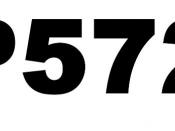Do you remember when Napster was shut down on grounds of copyright infringement? Or when flocks of college students were sued for owning their own download sites? These cases were made possible by none other than the Recording Industry Association of America, which represents the five major record labels, Sony, EMI, UMG, Time Warner, & BMG. The R. I. A. A. has been prosecuting offenders of their copyright laws since Napster was shut down, and they have yet to figure out why people still illegally download music. If consumers could buy CDs at more reasonable prices, no one would bother themselves with downloading.
Another means of releasing music to world was criticized years ago on the same grounds; it was called the radio. "Who would buy records if people could listen to music for free on the radio?" the record companies complained. Of course, this was worked out so that the artists were paid for every time their song was played, even though the musician almost certainly had to pay to get on the station to begin with.
And now radios are one of the best marketing strategies for an artist.
The R. I. A. A. charged people left and right on the grounds that record sales had gone down as a result of file sharing. But according to surveys from the R. I. A. A. themselves, "In 1999 music sales were up 11%," and "In the first quarter of 2000 music sales are up 8% over last year." Many of the companies that make computers and other devices that enable consumers to copy music and download MP3's have seen sales sharply decline. "It is not correct to assume that every time a copy is made, a sale is lost," said Gary Shapiro, a spokesman for the Consumer Electronics Association.


